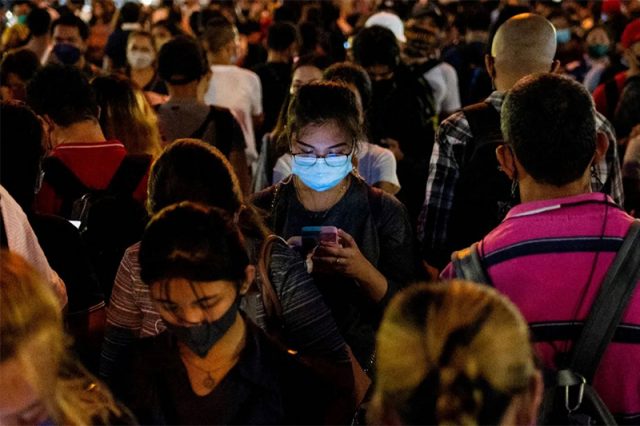
- Philippines faces shortage of cybersecurity experts
- Hacking incidents jump amid rising tensions with China
- Digital security skills grows fastest in poorer nations
MANILA (Thomson Reuters Foundation) – Nurses, engineers, doctors – now cybersecurity experts. As the Philippines counts the cost of brain drain, a surge in malicious cyber activity has highlighted the country’s digital security skills gap.
U.S. cybersecurity firm Resecurity reported a 325% jump in hacking and other digital intrusions targeting the Philippines during the first quarter of 2024 amid rising tensions with China, largely over disputed territory in the South China Sea.
That prompted President Ferdinand Marcos Jr to launch a cybersecurity strategy to beef up the nation’s cyber defences to combat attacks and digital crimes. Its military said last year it would create a cyber command.
But industry analysts say such plans could struggle due to big shortages of skilled “cyber warriors” in the Philippines, which is estimated to need tens of thousands of digital security professionals.
Whether targeting ordinary people, journalists or activists, online threats from doxxing to domain blocking and digital surveillance are rising in the Philippines and other Southeast Asian nations, highlighting a lack of resources and expertise to fight them, experts say.
“What the government doesn’t recognize is we’re having a brain drain not only in the healthcare sector but also in cybersecurity,” said JM Cipriano, a cybersecurity professional who has worked for a multinational company in the Philippines.
Despite a higher salary than other careers in IT, he said Filipino cybersecurity experts are being lured abroad by companies offering more money, better working conditions and relocation packages.
Practitioners in the Philippines can expect a monthly salary of between 40,000 and 90,000 pesos ($690-$1,560) – up to six-times the minimum wage, Cipriano told the Thomson Reuters Foundation.
But he said the Philippines was still losing cybersecurity talent to U.S. companies with offshore offices in Manila, or companies in Singapore, the United Kingdom and the Middle East that offer more competitive salaries.
Globally, the shortage of cybersecurity professionals reached a record last year, with some 4 million vacancies around the world, according to cybersecurity nonprofit ISC2, with the gap growing fastest in developing countries.
‘ENORMOUSLY EXPENSIVE’
While part of the problem is migration from the Philippines, a major global exporter of labour, domestic shortages are also linked to inadequate training opportunities and policies to boost recruitment at a national level, experts say.
The need for cybersecurity professionals “is not well communicated to the different parts of the country”, said Angel Redoble, founder of the Philippine Institute of Cyber Security Professionals, a nonprofit pushing for a secure Philippine cyberspace.
Filipinos can study cybersecurity in only a handful of private universities with high tuition fees, and are often encouraged to pursue certifications for specific training and courses for 15,000 to 20,000 pesos.
Such barriers led 27-year-old former teacher Jaevik Madayag to abandon his plans of working in the field.
“Cybersecurity certifications are enormously expensive for Filipinos and having a certification doesn’t guarantee that you could enter that workforce,” he said.
With cybersecurity threats and data breaches on the rise, the government is taking steps to boost recruitment.
In January, it launched a new set of cybersecurity standards that schools and training centres can use for their programme curriculum.
Under the new national cybersecurity strategy, there are plans for more specialist degrees and programmes to upskill or retrain existing professionals.
Fostering accessible career progress will be vital, said Madayag, who now does IT support for a leading global tech company.
“Cybersecurity is a niche job in the IT industry,” he said. “You have to go through many paths and prerequisites and cannot jump ahead to practice.”
($1 = 57.7400 Philippine pesos)
(Reporting by Mariejo Ramos. Editing by Helen Popper. The Thomson Reuters Foundation is the charitable arm of Thomson Reuters. Visit https://www.context.news)









